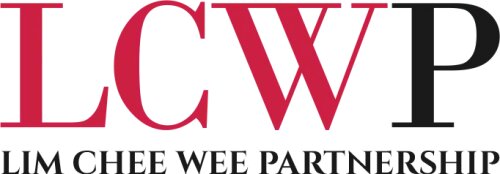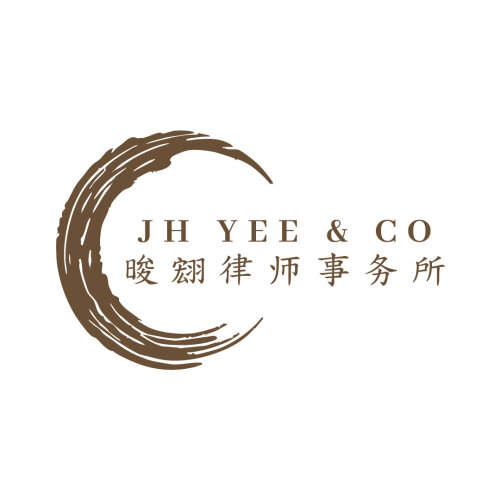Best Sanctions & Export Controls Lawyers in Kuala Lumpur
Share your needs with us, get contacted by law firms.
Free. Takes 2 min.
List of the best lawyers in Kuala Lumpur, Malaysia
About Sanctions & Export Controls Law in Kuala Lumpur, Malaysia
Sanctions and export controls are critical legal frameworks designed to regulate the international trade of goods, technology, and services from Malaysia, including the city of Kuala Lumpur. These laws help ensure that Malaysia complies with its international obligations, supports global security, prevents the spread of weapons and sensitive technology, and aligns with United Nations (UN) mandates or other international sanctions regimes. In Kuala Lumpur, compliance with these laws is overseen by multiple government agencies and is vital for businesses involved in import-export activities, multinational corporations, freight forwarders, and logistics companies.
Why You May Need a Lawyer
Navigating sanctions and export controls can be complex, especially as they frequently evolve in response to international events. You may need a lawyer if:
- Your business exports or imports goods, whether physical or digital, from Kuala Lumpur to countries subject to sanctions or export controls.
- You are unsure if your products require special permits or if they are classified as controlled, dual-use, or strategic items under local laws.
- Your company is facing investigations or penalties for alleged noncompliance with Malaysian or international sanctions.
- You seek to initiate or expand trade in regions facing sanctions risks or uncertainty.
- You need to implement or update internal compliance programs to address new regulations.
- You are involved in mergers, acquisitions, or joint ventures and need to conduct due diligence regarding sanctions exposure.
- You want legal advice on voluntary disclosures in the event of inadvertent violations.
Local Laws Overview
Sanctions and export controls in Kuala Lumpur are regulated by several key Malaysian laws and agencies:
- Strategic Trade Act 2010 (STA): This is the principal law governing export controls in Malaysia. The STA regulates the export, transshipment, transit, and brokering of strategic items such as arms, military hardware, and dual-use goods, including technology and software that could be used for military or terrorist purposes.
- Atomic Energy Licensing Act 1984: Regulates export and use of nuclear and radioactive materials.
- Customs Act 1967: Includes prohibitions and restrictions on the import/export of goods and sets penalties for violations.
- United Nations Security Council Resolutions (UNSCRs): Malaysia incorporates UN-imposed sanctions through local implementing regulations.
Relevant government bodies in Kuala Lumpur that oversee these matters include the Ministry of International Trade and Industry (MITI), Royal Malaysian Customs Department, and the Atomic Energy Licensing Board. Businesses and individuals must comply with all licensing, reporting, and documentation requirements or risk severe penalties, including fines and imprisonment.
Frequently Asked Questions
What is the purpose of Malaysia's Strategic Trade Act 2010?
The Strategic Trade Act 2010 is designed to regulate the export, transit, transshipment, and brokering of strategic and dual-use items that could contribute to the proliferation of weapons of mass destruction or be used for military purposes.
Who must comply with sanctions and export controls in Kuala Lumpur?
Any business or individual involved in the export, re-export, transit, transshipment, or brokering of controlled items from Malaysia must comply with relevant sanctions and export control laws.
What are "strategic items" and "dual-use goods"?
Strategic items are goods, software, or technology that have military or civilian applications. Dual-use goods are items that have both civilian and military uses and may be subject to special controls under the law.
How can I check if my goods require an export permit from Kuala Lumpur?
You can refer to the Strategic Trade (Strategic Items) List issued by the Ministry of International Trade and Industry or consult with legal counsel to check if your items are controlled and require a permit.
What penalties exist for violating export controls or sanctions in Malaysia?
Penalties can include heavy fines, imprisonment, confiscation of goods, loss of export privileges, and blacklisting from conducting business in Malaysia or with Malaysian entities.
Do sanctions only apply to countries currently at war?
No. Sanctions may be imposed for a range of reasons, including human rights violations, terrorism, nuclear proliferation, and other threats to peace and security, not just armed conflicts.
How do international sanctions affect businesses in Kuala Lumpur?
Malaysian businesses must comply with UN-mandated sanctions and local regulations that enforce them, which may restrict trade with certain countries, entities, or individuals.
Is it necessary to have an internal compliance program for export controls?
While not always legally required, having an internal compliance program is highly recommended as it helps prevent violations, ensures documentation, and demonstrates good faith in case of investigations.
Can I voluntarily disclose a violation of export controls to Malaysian authorities?
Yes, voluntary disclosure is possible and can mitigate penalties in some cases. Legal counsel can assist in structuring disclosures to regulatory bodies.
How often do export control laws and sanctions change?
The regulatory landscape is dynamic and can change rapidly due to international events. Businesses should regularly monitor for updates or seek ongoing legal guidance.
Additional Resources
The following resources and organizations can provide further guidance or information on sanctions and export controls in Kuala Lumpur, Malaysia:
- Ministry of International Trade and Industry (MITI) - Oversees trade regulations and export controls
- Royal Malaysian Customs Department - Administers customs and enforces trade laws
- Atomic Energy Licensing Board - Regulates nuclear and radioactive material
- Bank Negara Malaysia (for financial sanctions and compliance with anti-money laundering laws)
- Malaysian Bar Council - Directory of qualified legal practitioners in sanctions and trade law
You may also consult international organizations, industry associations, or legal publications for up-to-date developments.
Next Steps
If you require legal advice or representation regarding sanctions or export controls in Kuala Lumpur:
- Gather all relevant information and documentation related to your business and the goods, technology, or services involved.
- Contact an experienced lawyer or law firm that specializes in export control and trade compliance matters.
- Schedule a consultation to assess your situation, identify risks, and discuss strategies for compliance or defense against allegations.
- Implement any recommended compliance measures or corrective actions as soon as possible.
- Stay informed of legal updates and maintain regular contact with your legal advisor to ensure ongoing compliance.
Taking prompt, informed action can help protect your business and reduce potential legal exposure.
Lawzana helps you find the best lawyers and law firms in Kuala Lumpur through a curated and pre-screened list of qualified legal professionals. Our platform offers rankings and detailed profiles of attorneys and law firms, allowing you to compare based on practice areas, including Sanctions & Export Controls, experience, and client feedback.
Each profile includes a description of the firm's areas of practice, client reviews, team members and partners, year of establishment, spoken languages, office locations, contact information, social media presence, and any published articles or resources. Most firms on our platform speak English and are experienced in both local and international legal matters.
Get a quote from top-rated law firms in Kuala Lumpur, Malaysia — quickly, securely, and without unnecessary hassle.
Disclaimer:
The information provided on this page is for general informational purposes only and does not constitute legal advice. While we strive to ensure the accuracy and relevance of the content, legal information may change over time, and interpretations of the law can vary. You should always consult with a qualified legal professional for advice specific to your situation.
We disclaim all liability for actions taken or not taken based on the content of this page. If you believe any information is incorrect or outdated, please contact us, and we will review and update it where appropriate.
















